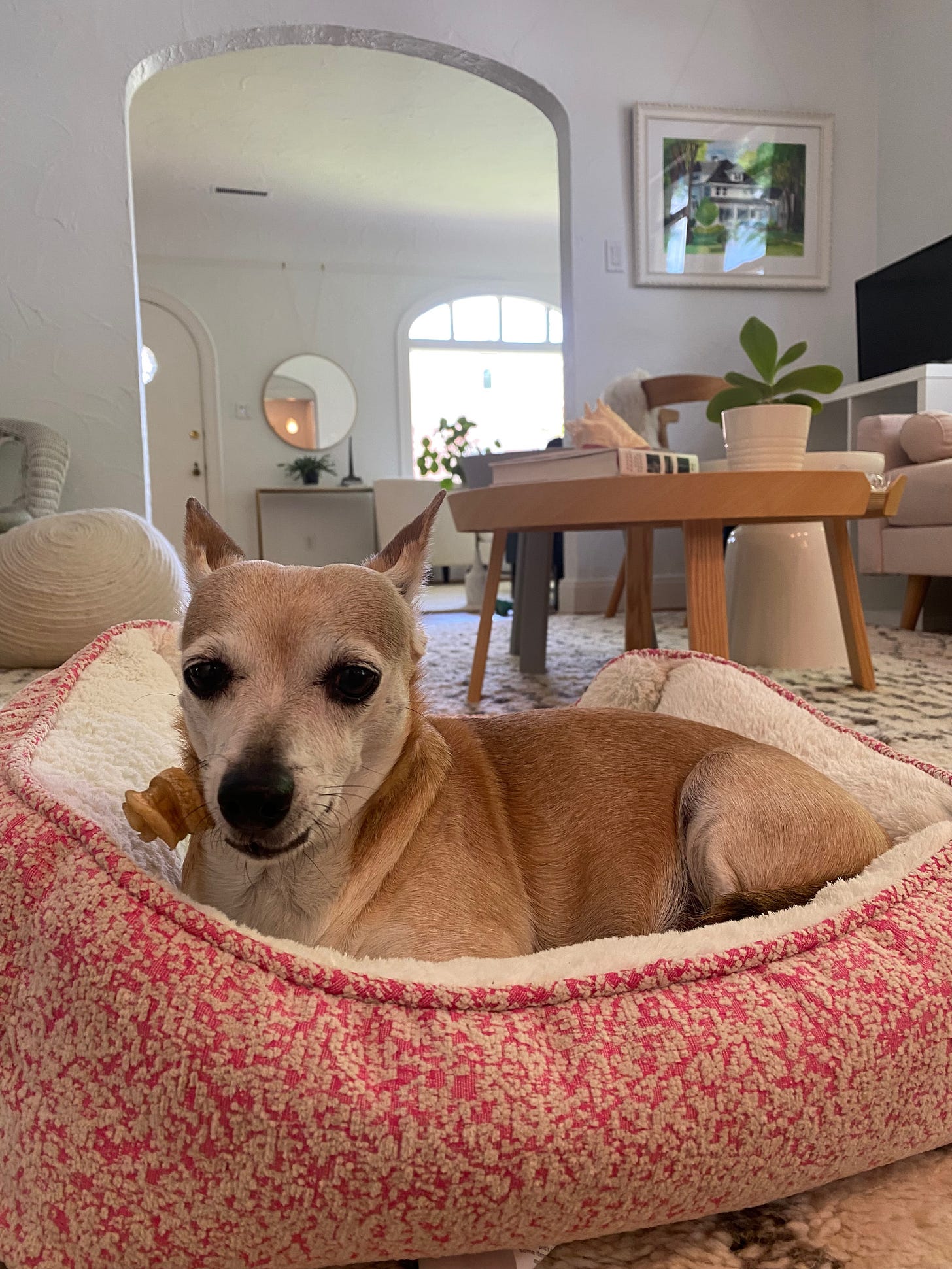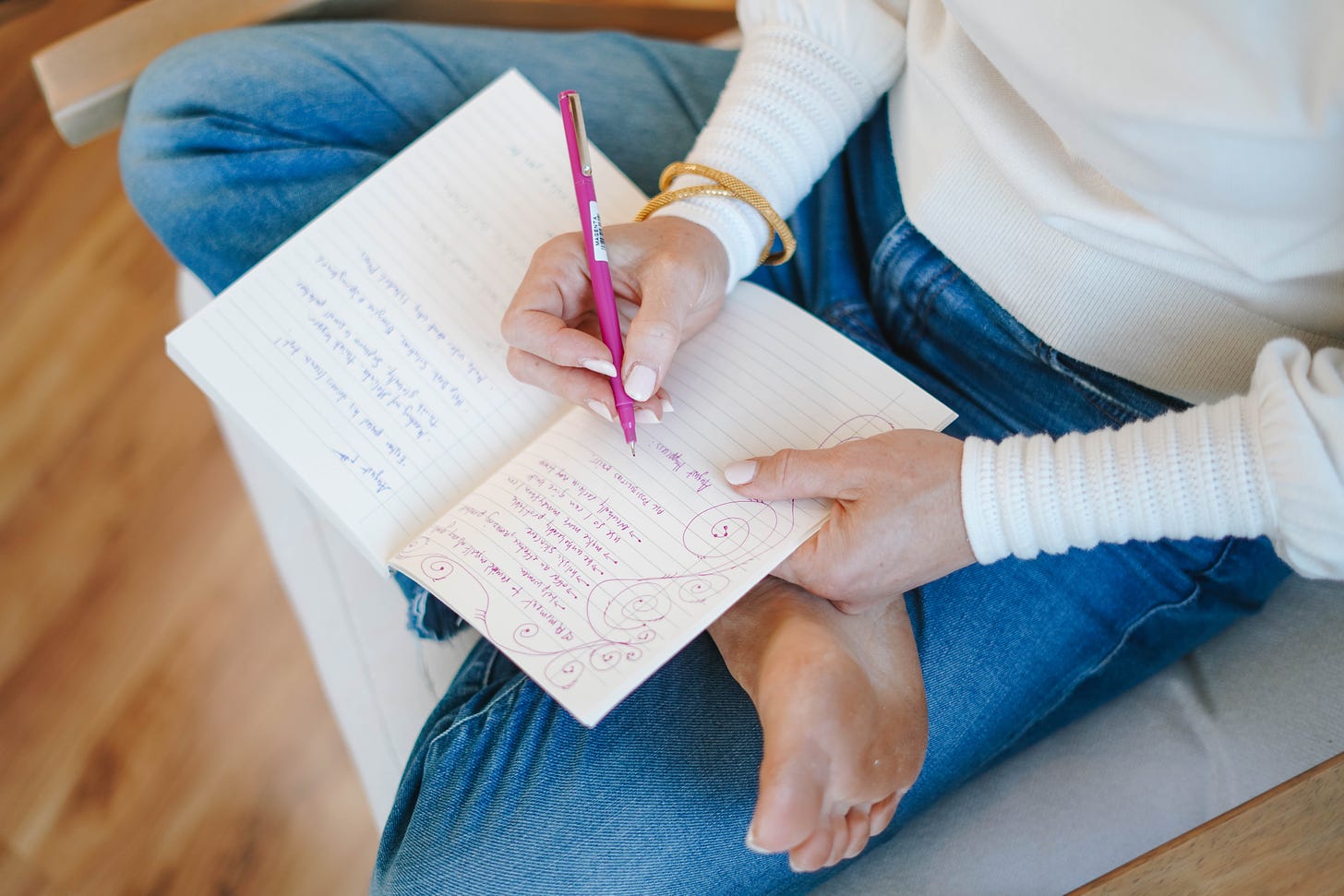Favor to ask (and I hate asking for favors!). If you’re a regular reader, would you be so kind as to hit the ❤️❤️❤️ if you’re so inclined? It truly makes a difference.
Though travel is certainly exciting and rewarding (read about my recent trips to NYC and the Midwest here), I often come back home feeling tired, foggy, and bloated. In fairness this makes sense: travel can disrupt your sleep and eating patterns, thwart your exercise routine, dry out your skin, spike your stress levels, and make you more likely to come in contact with germs and environmental toxins.
I’m not in the phase of life where I can take a few days off to reset and destress after getting home. (Though I’d love to plan some personal travel soon! Where should I go?) Instead, here are a few of the things that help me get my energy, mental clarity, and complexion back upon reentry.
Spend time with my loved ones
The first thing I want to do when I get home is sit with my family and hear everything that I missed while I was out of town, plus share all the exciting things that happened on the trip. There is always news to catch up on, and my dog requires a lot of reassurance that I won’t desert her again.
Upack and reset my closet
If I’m lucky enough to arrive home before 5 PM, I try to unpack that evening and reclaim my space, which sets me up for the next day. (If not, that’s the first thing on my to-do list in the morning.) I know laundry isn’t the sexiest topic, but there’s something about creating order out of chaos that calms me.
Truthfully I outsource cleaning a lot of my work wardrobe to my brilliant local dry cleaner. For the rest of the delicate items, I swear by Eucalan. Recently I came across The Fill and have been eyeing a membership to this woman-owned company with clean laundry products and sustainable, refillable bottles. Does anyone else love a steamer as much as I do for refreshing clothes? I love the Nori, which is a steamer / iron combo that works just like a flat iron for your hair to smooth out your tops, pants, and dresses.

Sweat (A lot)
In perimenopause fluctuating hormones can cause your liver to get a little sluggish, meaning it has trouble breaking down toxins from food, the environment, plastics, alcohol, or smoke. (I rarely drink anymore because it makes my insomnia worse, but if you do, this is why you may now feel awful after just a glass of wine or two.) One way to support your liver is to get in a good sweat session. On weekends, I plan for a long run of 60-75 minutes, but any sweaty workout will do.
Sitting in a sauna is another great option. Right now I’m reading a particularly zeitgeist-y book: Good Energy: The Surprising Connection Between Metabolism and Limitless Health by Dr. Casey Means. She recommends 47 minutes of sauna per week plus at least one minute of cold plunge three times per week. I’m always freezing, so the idea of a cold plunge isn’t exactly appealing to me, but I want to try the sauna / cold plunge combo at my local gym. Anyone have any tips for getting through it?
Grab My Water Bottle
My emotional support water bottle of choice is the Boroux Glass Water Bottle, but go ahead and fill (and refill) your Stanley, Owala, Yeti, or S’Well to the brim. Some days I take three of these water bottles with me to work to make sure I’m hydrated appropriately. I like to slice up some citrus and toss it in there with a little ice since the fruit is also fantastic for liver support and for your skin. Experts recommend drinking two liters per day — especially critical after air travel to rehydrate your body and flush out any toxins.
Load Up My Salads
Specific foods can also support your liver post-travel — and everyday, really. I like to load up my lunch salads with foods rich in B vitamins, sulforaphane, zinc, and magnesium. My secret for getting extra veggies? I chop up my veggies so small that I can eat my salads with a spoon. Sounds weird, I know, but it makes it easier to get enough fiber and vegetables into your diet, and personally, I think the bite-sized bits make them easier to digest. I’ve listed some of my favorite ingredients below, but also check out one of my favorite Substacks, The Department of Salad, for outstanding recipes.
B vitamins: eggs, mushrooms, avocado, oats, bananas, oranges, broccoli, leafy greens, and nutritional yeast (great on popcorn!)
Glycine: seaweed, spinach, watercress
Sulforaphane: kale, cruciferous vegetables, such as broccoli, cauliflower, Brussels sprouts, cabbage, collard greens
Zinc: pumpkin seeds, breakfast cereals, baked beans, cashews
Magnesium: pumpkin seeds, chia seeds, nuts, spinach
Process the Experience
I’m prone to self rumination – sometimes after new experiences or lots of social interaction I get home and replay conversations in my mind. Can anyone relate? Thoughts like “Maybe I should have said this” or “What did she mean by that?” ping-pong around my brain until I process them properly. I do this in a couple of ways.
Movement helps me a lot. I often enjoy a longer-than-usual yoga practice to smooth out the kinks and aches in my body, typically an online class through the platform Glo Yoga. Their teachers are well-trained, and I find it’s easier for me to fit in a class first thing in the morning, at lunch, or in between meetings if I can roll out my mat wherever. Journaling is another go-to. Putting any anxious thoughts to paper gets them out of my head and makes them less likely to reappear at night when they can impact my sleep. Lastly, talking with friends about my travels is especially helpful — even better if we meet up for a walk.
Reset My Skin
Now for the fun stuff. Perimenopause has gifted me very dry skin, and air travel makes it 100 times more noticeable in my opinion. Day-to-day I go for much more gentle exfoliation so I don’t disrupt my skin barrier, but I love a good peel. My long-time favorite is the two-step Alpha Beta Peel from Dr. Dennis Gross. It brightens my skin by getting rid of that layer of dull, dead skin cells without any stinging at all. (If you have very sensitive skin, there’s also a gentle version, FYI.) Weekly is enough for me, although it’s safe enough for daily use.
Then I moisturize, moisturize moisturize. I go for a thick layer of a barrier repair cream that won’t clog pores – a cream with ceramides is key — followed by a lightweight face oil. (I use Calm, the barrier repair cream I created for perimenopausal and menopausal women to do just that. It’s especially nice post-peel because it contains red algae, which gives it a slight cooling sensation when you apply it. My next step is a couple of drops of Luminous, our lightweight face oil, to lock in all of those gorgeous botanical ingredients. The products are excellent alone, but particularly restorative when used together.)
This Week’s Movement Snack
This week’s movement snack is about resetting my body after traveling with twists and lunges. I find that the front of my hips feel tight from traveling and my low back feels grumpy from all the sitting. This short sequence addresses both of those issues for me. Enjoy!
Cheers to looking and feeling your best,
Susan
Susan Campbell
Founder & CEO, Phosis






Such a great post. Love the focused intentionality of it all!
I'm hijacking this post (sorry!) to tell you I loved your IG video where you put on your face oil. Wow, that looks lovely. I just rub my serum in with heavy hands without much thought or making it a real beautiful self-care moment. I can learn a thing or two from you. I would have commented there to tell you, but every time I try to leave a comment I get booted out {insert eyes rolling}. As a fellow curly girl, anything you can recommend for curly hair? I have moisturizing products, but need some sort of deep mask as a weekly treatment. Subscribing so I won't miss a beat from you.